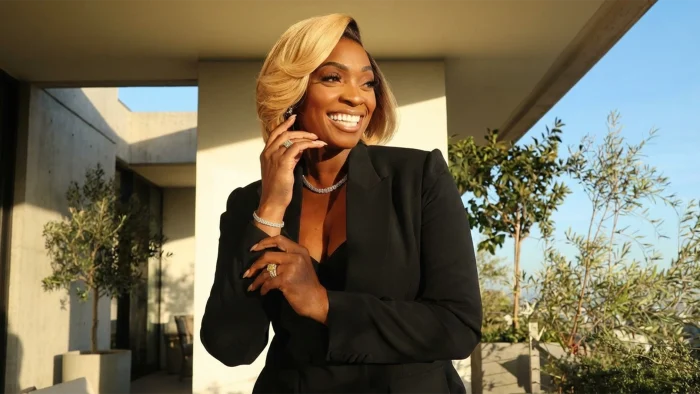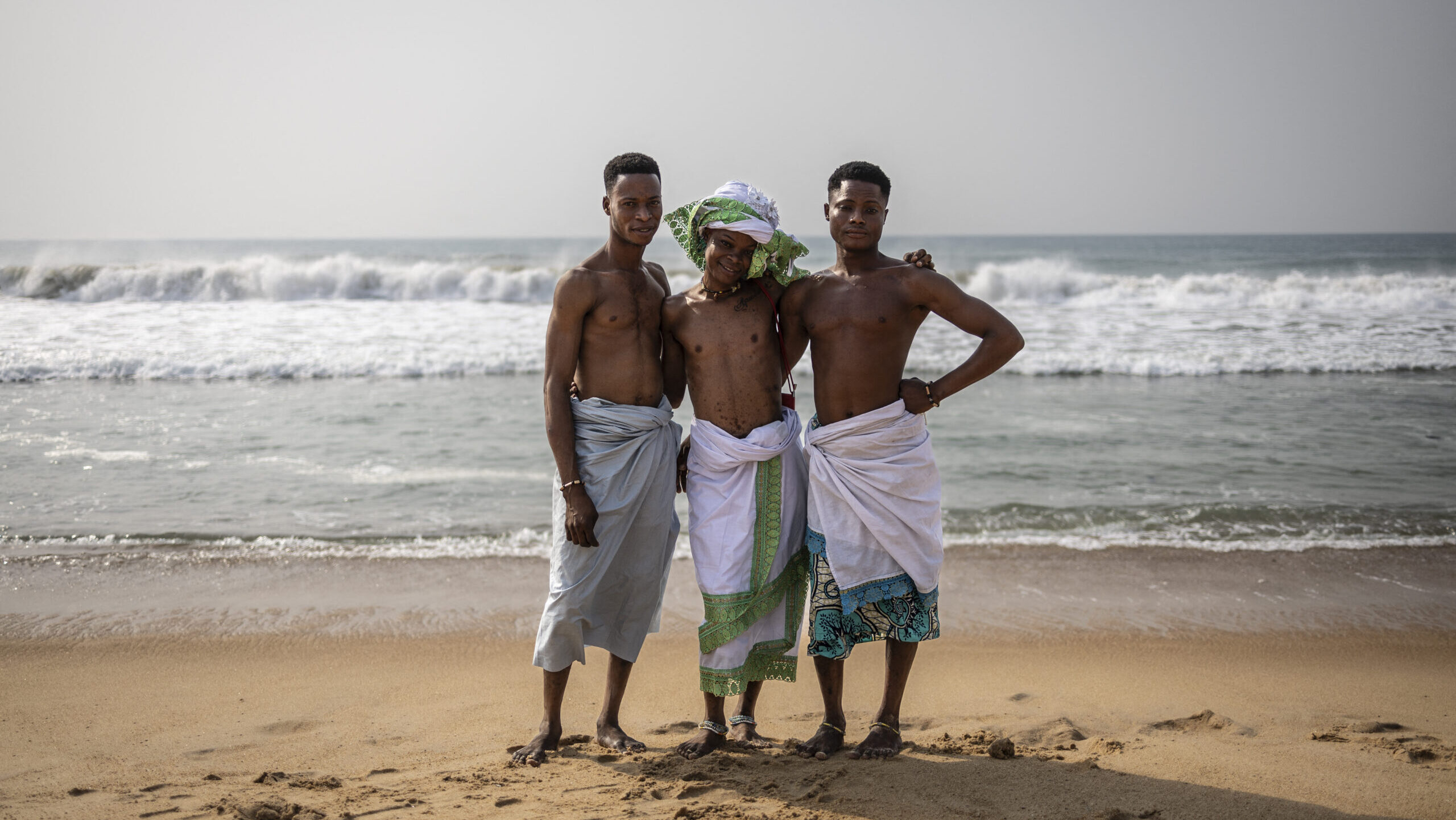
In Benin, women are the backbone of voodoo celebrations, integral both on the front lines and behind the scenes. Their roles in organising rituals, preserving sacred knowledge, and maintaining cultural heritage are indispensable. As guardians of tradition and educators of the next generation of practitioners, these women embody resilience and strength, ensuring that Vodun Days and the wider voodoo culture endure despite modern challenges.
Clad in white and pink, Deborah Bossou, 25, blends vibrant song with dance as she immerses herself with fellow practitioners in Vodun, traditional voodoo celebrations in Benin.
This weekend brought the traditional Vodun Days annual festival encompassing arts, culture and voodoo spirituality to the southern town of Ouidah, centred on the Sakpata Zoungbodji religious convent.
READ ALSO: Lagos-Calabar Highway: Group tackles works ministry over disregard for court order
“This religion, this culture—Voodoo—occupies a central role in my life. That’s why it was important for me to be here,” said the smiling young woman who has accessorised her festival barb with a long white pearl necklace and matching bracelets.
Women play a central role in this three-day festive celebration which was reaching its climax Saturday evening.
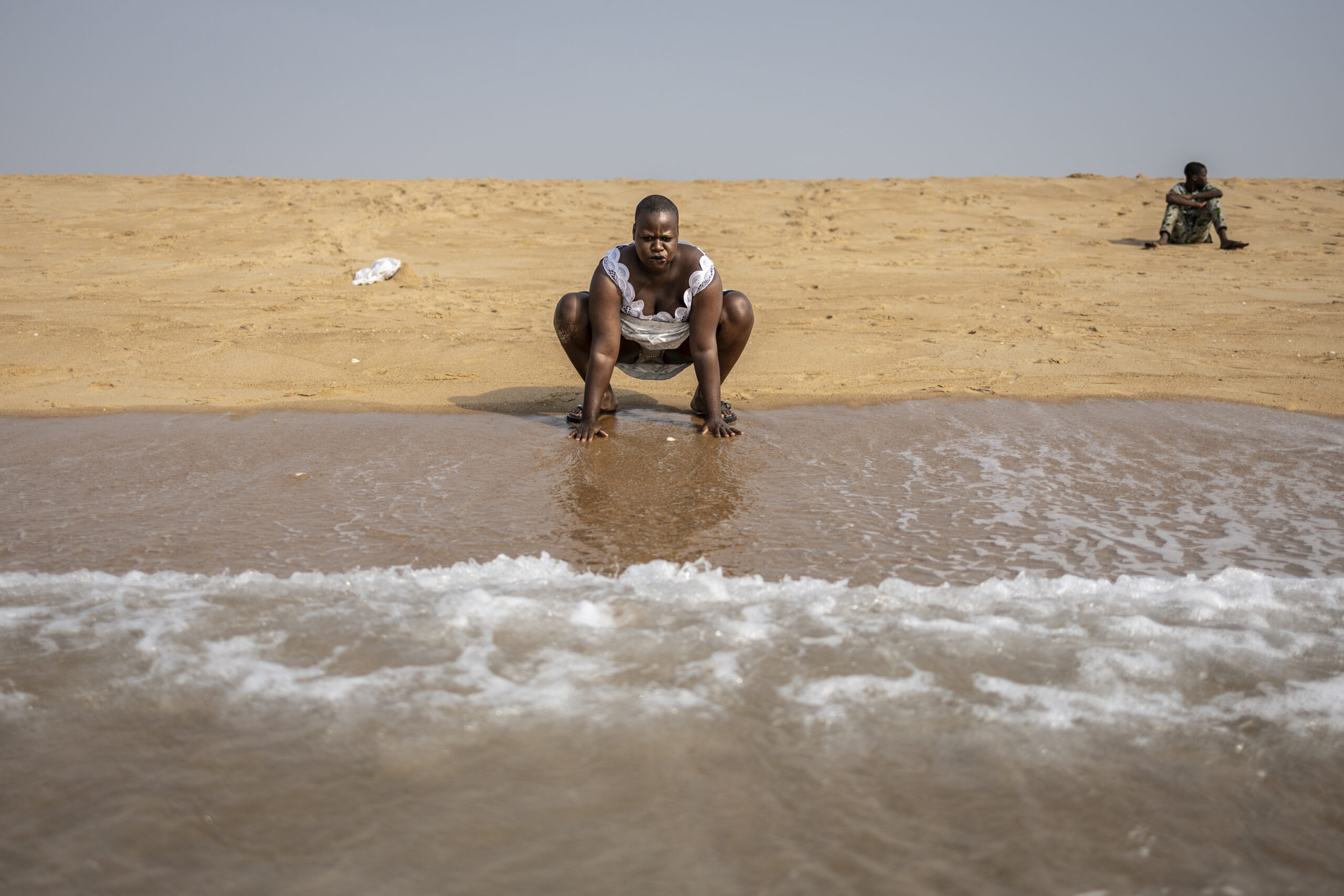
They are cast in the role of guardians of spiritual transmission and preparation of rituals of voodoo, an animist rite founded on the powers of nature and links back to one’s ancestors.
The Vodun Days rituals bring thousands of people from all corners of the globe to Ouidah, the cradle of voodoo.
‘Secrets’
“Without women both out there in the foreground and behind the scenes, there would be no Vodun Days, nor voodoo. They are essential pillars” of the festivities, Dah Adoko Gbediga, president of the Union of Associations and Organisations Endogenous Religions of Benin (UAOREB) told AFP.
“We can understand this simply from observing what is happening right now all around us,” said Gbediga, 68, from the comfort of his seat at the Python temple, where dozens of voodoo worshippers have assembled. Pythons according to traditional legend protected Ouidah from outside aggressors.
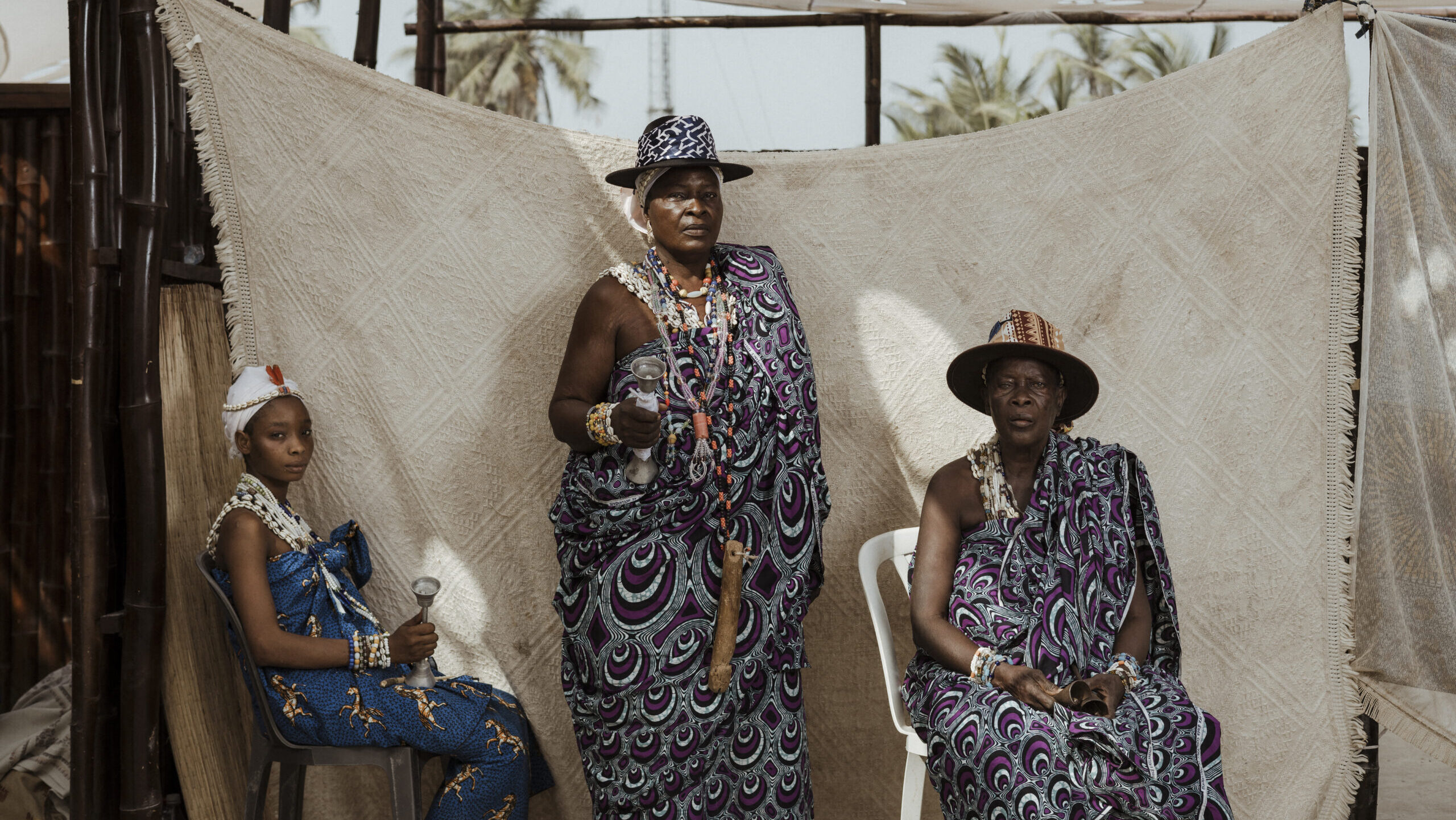
Tourists gather to admire dozens of voodoo practitioners who go into a trance to incarnate Thron Kpeto Deka, a divine presence representing perfect happiness and riches. Others dance to the rhythms of drums played by men.
“It is mainly women who choose the clothes which we shall wear for this type of event,” said Gbediga.
“They play a large role in the organisation of the rites, particularly as they are responsible for teaching and transmitting voodoo knowledge in the convents for young and old.”
According to Benin’s culture minister Jean-Michel Abimbola, missions imparted to women for the organisation of voodoo rites are “numerous and important”. But the exact nature of some of these may not be revealed owing to rules of secrecy surrounding the rituals.
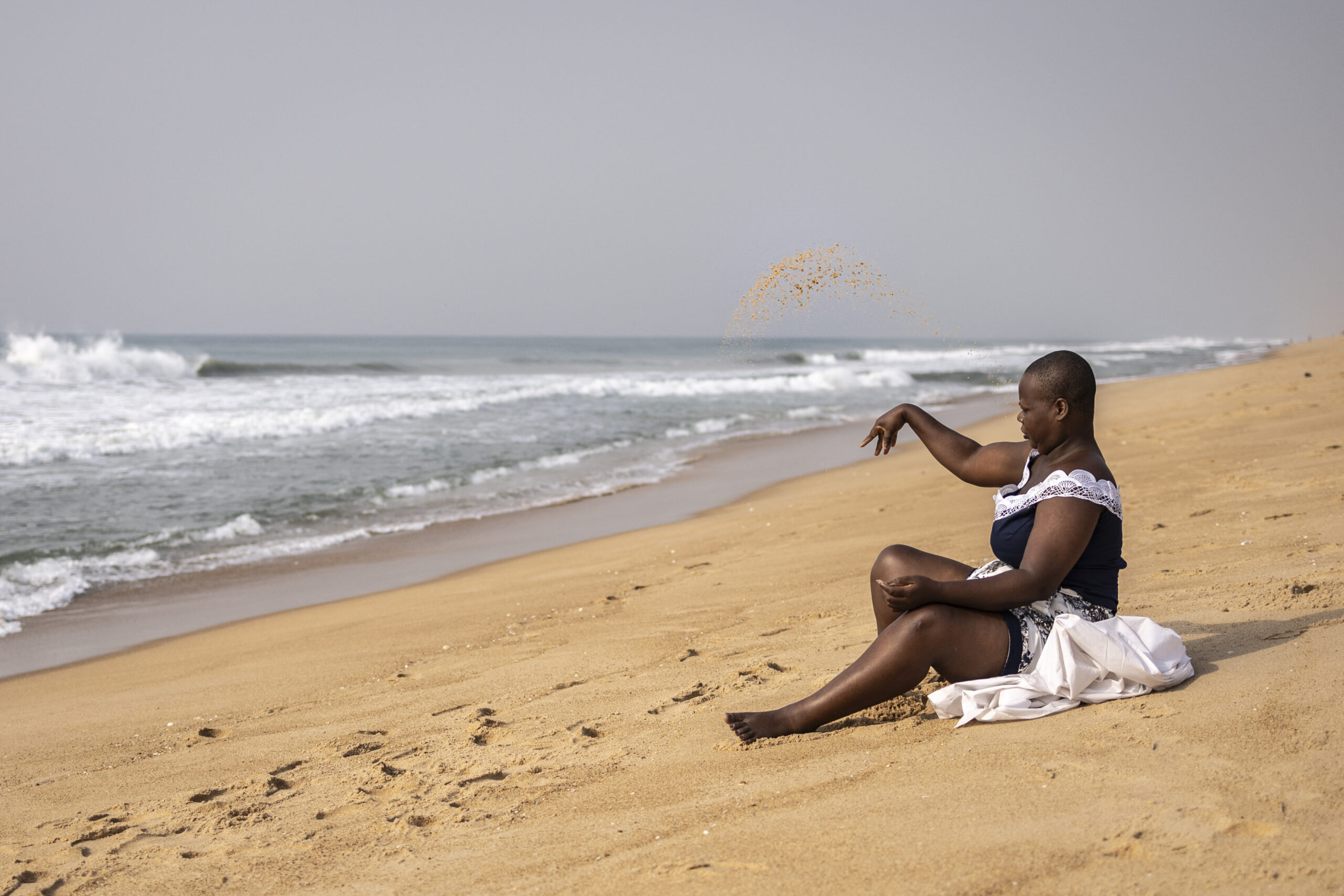
“There are secrets known only to people such as me who have been initiated. But I can say that women do have a central place in voodoo,” Abimbola told AFP as the celebrations picked up the pace.
To be initiated, it is best advised to approach leaders of the followers, who attend Vodun Days in large numbers and who stand out in the crowd with their white scarves.
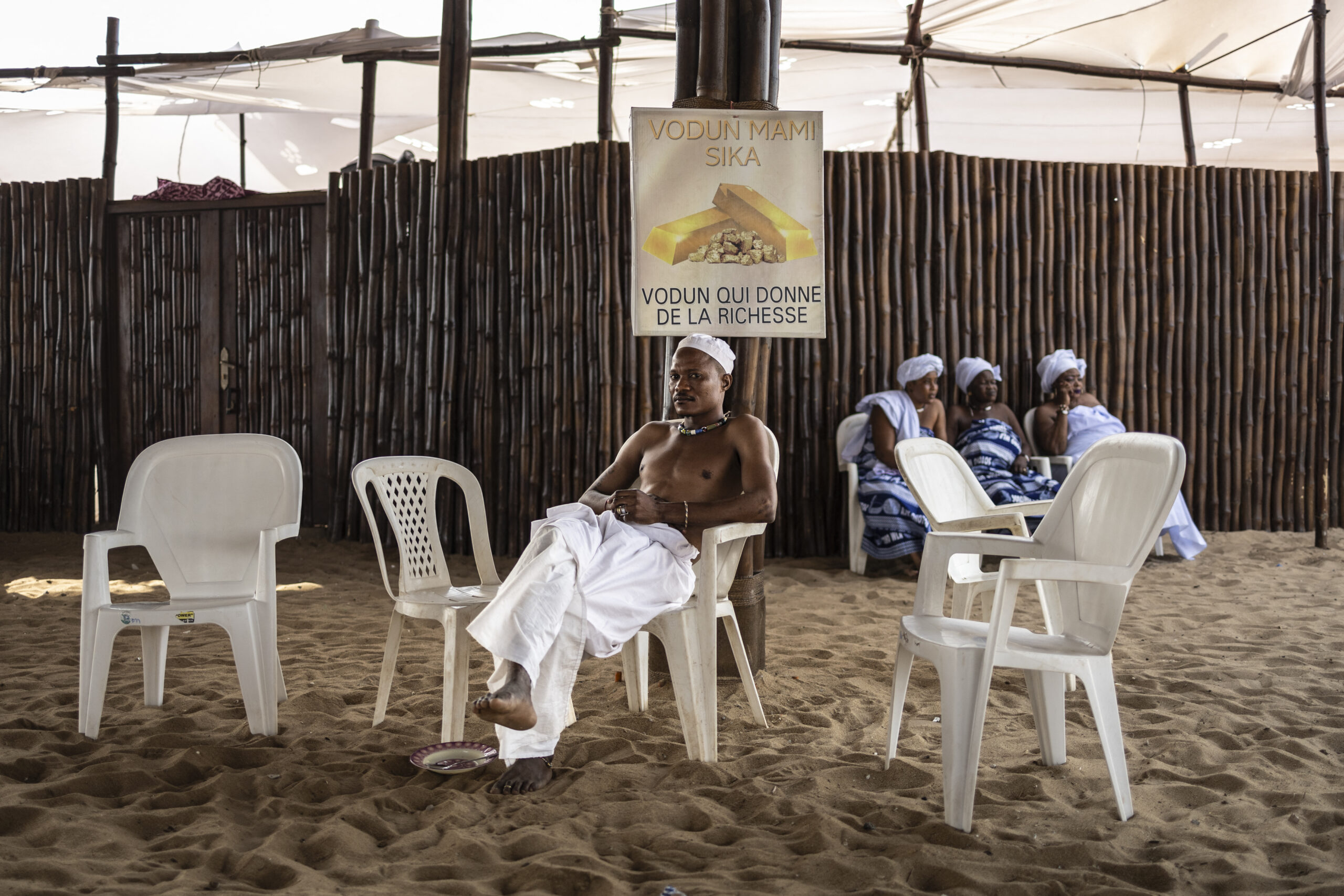
“We can give thanks to the divinities for those who cannot, and we are also intermediaries between the followers and the voodoo leaders,” said one of their number, Tassi Kpomegan Gabrielle, 70.
Female divinities
Some celebrations at the festival are dedicated specifically to female divinities such as Mami Wata and Sakpata, underlining the importance of women’s role both in voodoo and the collective cultural imagination.
Some of those dedicated to Mami Wata, an aquatic deity representing a nourishing mother and the destructive power of the ocean, attracted hundreds of people to Ouidah Beach.
For local dignitary Suzanne Celeste Delaunay Belleville, there can be no doubt as to the importance of women and their feminine deities in voodoo rituals.
“Women are present at all stages. At the beginning, in the middle and at the end. Even in rites reserved for men, women are always there,” she explained.
That said, she deplores a lack of representation of women within senior voodoo authorities.
Citing a few ranking female dignitaries she laments that “many have been brought up to remain in the shadows and this is something we still have to work upon”.






